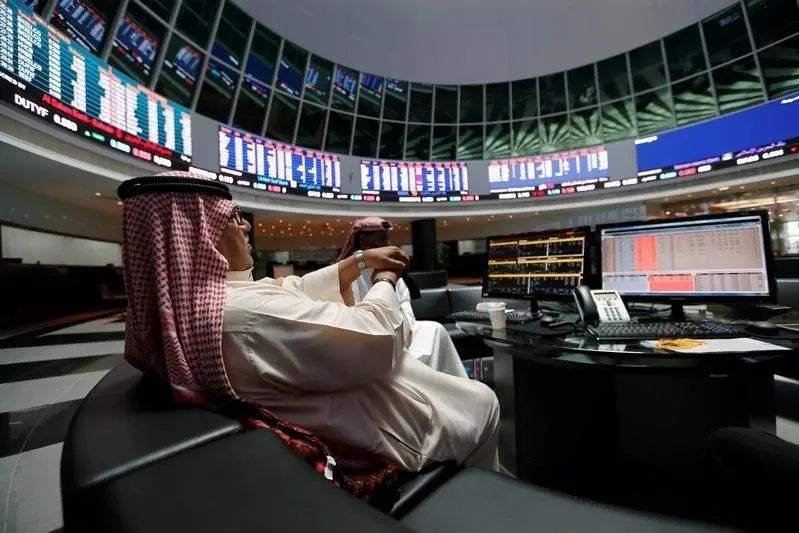PHOTO
David Parker, Executive Director, Financial Services Bahrain Economic Development Board (EDB), writes exclusively for IB&F about movement in the sector
We in Bahrain are very excited about the next few years in the Islamic banking sector. Financial technology has the potential to transform Islamic finance, just as it has transformed the conventional financial sector. Not only could this lead to rapid growth and innovation in the sector but it could also play a role in enhancing financial inclusion across the MENA region.
Bahrain has always been at the heart of the development of the sector and we are keen to play our part in the future of the industry.
With over four decades of experience as a regional financial centre, Bahrain has the largest concentration of financial institutions and funds registered and domiciled in the region. The Kingdom is home to over 400 licenced financial institutions, including around 80 conventional banks, 25 Islamic banks and over 35 insurance firms; in addition to more than 2,800 authorised funds, predominantly made up of offshore funds. All of these are regulated by single regulator since 2002—the highly regarded Central Bank of Bahrain (CBB).
Bahrain plays a central role in the development of the Islamic finance sector and recently the ICD-Thomson Reuters Islamic Finance Development Indicator ranked the Kingdom as the most developed Islamic financial market in the Middle East and the second in the world. Bahrain is also home to a number of the institutions that set the standards for industry around the world (e.g. AAOIFI, CIBAFI and IIFM) and to a number of global centres of excellence and research.
Bahrain also announced the first Shari’ah-compliant stock market index in the Gulf and the region’s first central Shari’ah supervisory board at the CBB which should help to enhance standardisation and subsequently drive down costs.
2017 DEVELOPMENTS
The demand for new products and services, alongside Bahrain’s increased focus on innovation and support for fintech focused businesses creates exciting opportunities in the Islamic finance sector. In March, Bahrain signed an agreement with the Singapore Fintech Consortium to develop a fintech ecosystem and regulatory framework for the Kingdom.
Bahrain has also recently launched a consultation paper on developing a regulatory sandbox for fintech, which is aimed to launch soon this year. The response for the sector has been encouraging and many financial organisations are willing to test new innovative products and services.
ADDRESSING CHALLENGES
One of the constraints on growth in the sector has been a lack of trained personnel in handling Islamic finance products. To address these challenges, the Central Bank of Bahrain led the effort to put investment into Islamic finance training and education through the Waqf Fund and has worked alongside a number of other institutions in Bahrain, such as Tamkeen and the Bahrain Institute of Banking and Finance (BIBF).
AAOIFI, which is based in Bahrain, has also led the development and issuance of standards for the global Islamic finance industry for over two decades, which helps make Islamic finance more uniform and cost efficient. The Shari’ah board at the Central Bank of Bahrain also helps oversee Islamic finance products in the Kingdom, and often introduces initiatives to strengthen governance in the sector.
OPPORTUNITIES
This is an exciting time for the Islamic finance sector as it’s beginning to take off around the world. In the mid-1970s, Bahrain was the first country to focus on Islamic Banking and to nurture the concepts, rules and common standards of Shari’ah compliance. Now, Bahrain is one of the leading global Islamic finance centres due to its concentration of institutions and skilled local workforce.
As of September 2016, the Kingdom hosted 25 Islamic banks whose assets under management total valued at around $25.7 billion.
Bahrainis are also financially and technologically literate, educated, and have the skills to support the workforce needed to meet the growing demand for Islamic finance. Bahrain’s competitive operating costs and high quality technology infrastructure also enable firms to operate efficiently and cost-effectively across the region.
At the Bahrain Economic Development Board (EDB), we are committed to help link businesses to the opportunities and as our remit is to attract investment in order to generate high quality jobs for Bahrainis, we are not just interested in getting companies to sign up, we also want them to prosper in the years to come.
FOCUS ON FINTECH
Similar to conventional banks, it is very important for Islamic banks to adapt and develop fintech infrastructure. The Gulf is home to a young tech savvy population that is open to adapting to a new way of banking—a 2017 McKinsey survey found that about 80 per cent of consumers in the Kingdom of Saudi Araba and United Arab Emirates, the two biggest banking markets in the Gulf, are willing to shift from a third to more than half of their credit-card, savings, and borrowing activity to banks with strong digital offerings.
Growing consumer interest in digital banking services will continue to force banks to change. As Islamic banks adapt and develop their fintech infrastructure, it is likely we will see more financial inclusion in the way that mobile technology spread across the MENA region. The change in infrastructure will boost accessibility and support the continued growth of Islamic finance and banking across the world.
© Islamic Business & Finance 2017





















